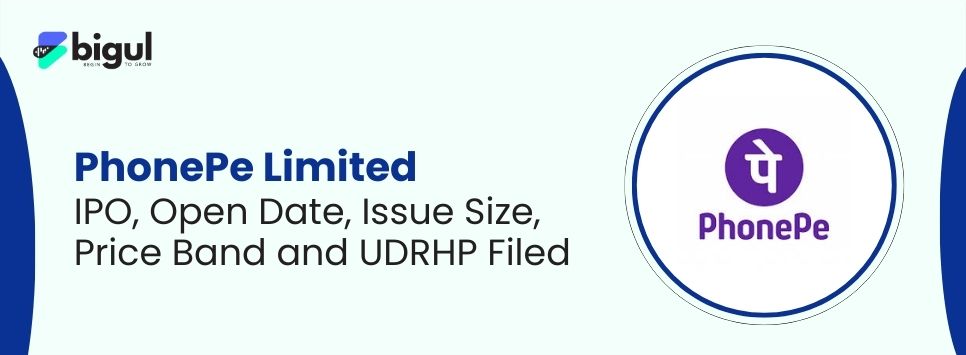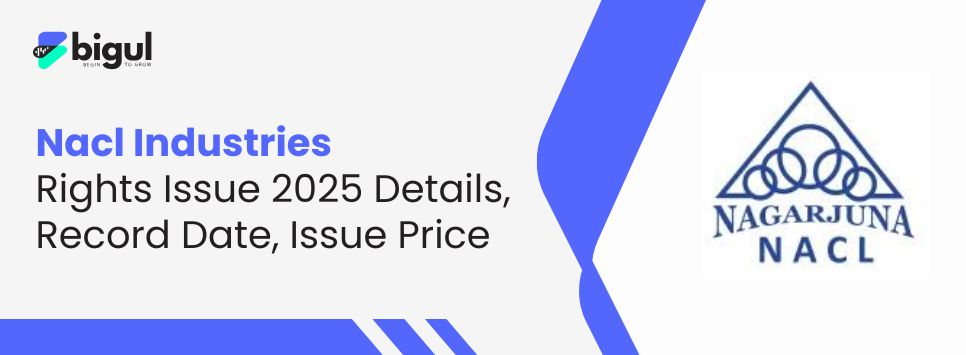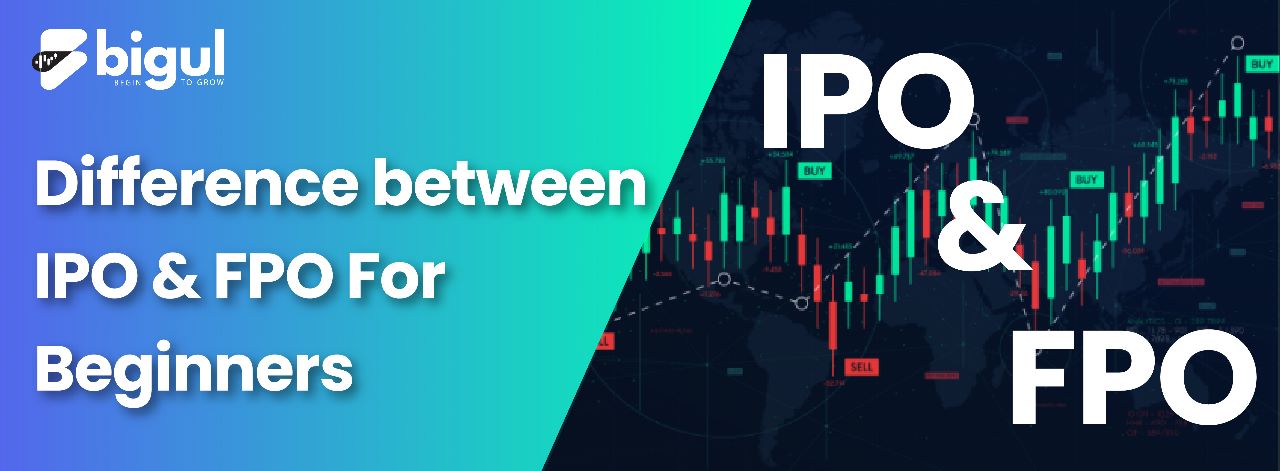In everyday processes, all businesses and organisations require a flow of resources. To suffice that, we have two major techniques to raise capital for a business: debt, the company’s borrowed capital, or equity. Before investors begin investing in the stock market, they must understand a few basic concepts and terms to gain profits, like IPO and FPO. Any business, corporation, enterprise or firm can raise or get capital through equity market investors in two ways: through an initial public offering (IPO) and a follow-on public offer (FPO).
A leading business can also raise money by issuing corporate bonds as an alternative. The differentiating factor between IPO and FPO is described below in terms of several factors.
An IPO: What Is It?
In literal terms, an IPO is an initial public offering, according to which a privately owned company lists and then announces its shares on the stock market, making them available for buying or investment purposes by the general public. This works as a suitable strategy for both the business and the shareholders.
However, a huge number of people believe that IPOs are big money-making opportunities where high-profile companies grab headlines with huge share price gains when they go public. While they’re trendy and stylish, you need to understand that IPOs are risky investments prone to deliver uneven returns over the longer term.
An initial public offering (IPO) is a very simple yet profitable process of selling shares of a privately owned company to the public for the first time in a new stock issuance. An IPO promotes an organisation to raise equity capital from the public.
If you wish to know more about IPO and to invest in IPOs easily, reach out to the best trading platform in India, Bigul, today!
What is the meaning of An IPO for an individual business or firm?
A business or company develops financial administration when it is initially funded or backed up by investors, venture capitalists, various corporations, and on rare occasions, even the government. The organisation then launches its IPO, comes out to the public for the first time, and begins trading publicly on exchanges after it achieves an even larger amount of development and its funding expires or becomes inadequate.
The outcome is that when an individual chooses to invest in a company, the organisation will receive a budget, which also involves a large amount of dedication to overseeing the business well. The purpose is for holders of shares to avoid suffering any losses. Similarly, the organisation or company and its shareholders at the bottom level will have greater liquidity.
What is the importance of An IPO For Investors?
As an investor, you get a certain amount of ownership in an entity when you purchase a share, or a set of shares, in that company. Individual stock ownership plans, or ESOPs, are only one of the possibilities that become apparent after the business decides it wants to go public. A business might grant its staff stock ownership, which offers many benefits, including profit sharing and equity dilution.
You can learn to invest in IPOs easily with Bigul and start your investment journey with the best trading platform in India today!
FPO, what exactly is that?
The follow-up offering to the IPO is the FPO. The distribution of shares following the company’s placement on the exchange of stocks can also be referred to as a “follow-on public offer.” Compared to an IPO, which is merely the first issuing of shares, an FPO is an additional issuance of shares.
What advantages do FPOs provide businesses or organisations?
An FPO intends to obtain additional capital and pay back any existing debt the firm has to eliminate. UNLIKE AN IPO, an FPO can be implemented in one of these two methods.
There are various types of FPOs and IPOs; let’s discuss some!
Dilutive FPO:
An organisation offers additional shares in the market for the public to purchase by introducing a dilutive FPO. Nevertheless, the company’s worth continues to remain the same. A dilutive FPO lowers the corresponding share price while decreasing the profit per share.
Non-dilutive FPO:
A non-dilutive FPO appears among the company’s major shareholders, such as the founders of the business or the board of directors, who sell the shares they privately possess on the public marketplace. This strategy increases the number of shares easily available to the public but not those functional to the company.
Explore more profitable ways of investing in FPOs with the best trading platform in India, Bigul.
IPO vs FPO
Meaning: An FPO is the distribution of shares by an organisation to raise more funds after its IPO, whilst an IPO is the first time an organisation issues shares.
Price: An FPO’s price is affected by market demand as the number of shares offered to the public rises or drops, whereas an IPO’s price is either set fixed or adaptable in a range.
Share capital: During an IPO, the firm decides to raise more funds from the public to list its stock. Conversely, depending on which kind of FPO it is, the number of stocks in an IPO may go up or down. The number of shares rises in a dilutive FPO while remaining the same in a non-dilutive FPO.
Value: IPOs occasionally cost more for implementation than FPOs. FPOs are affordable since the value of the firm listing the stock is generally getting hampered.
Risk: In comparison to FPOs, IPOs are seen to be riskier.
Company status: An unlisted company provides an IPO, whilst a previously listed company issues an FPO.
To sum it all up – The key Differences between IPO vs FPO
- FPO is the second or consecutive public issuance of shares of an already publicly listed company. In contrast, an IPO is the first public issue of shares of an unknown business that will become public.
- An IPO tends to be riskier than an FPO, while with an IPO, an individual investor is ignorant of potential future business development. Conversely, investors know FPO, considering the business has been publicly traded on a stock exchange. As a result, investors can examine prior performance and draw assumptions about the business’s prospects for future growth.
Sceptical about when to choose an IPO or FPO? Your risk tolerance and goals will determine the most suitable investment for you, or you can easily connect with the best investment platform in India, Bigul. Their team will cautiously study your funds, understand your needs and strategise a more beneficial and profitable option.

.jpg)

.jpg)




.jpg)


